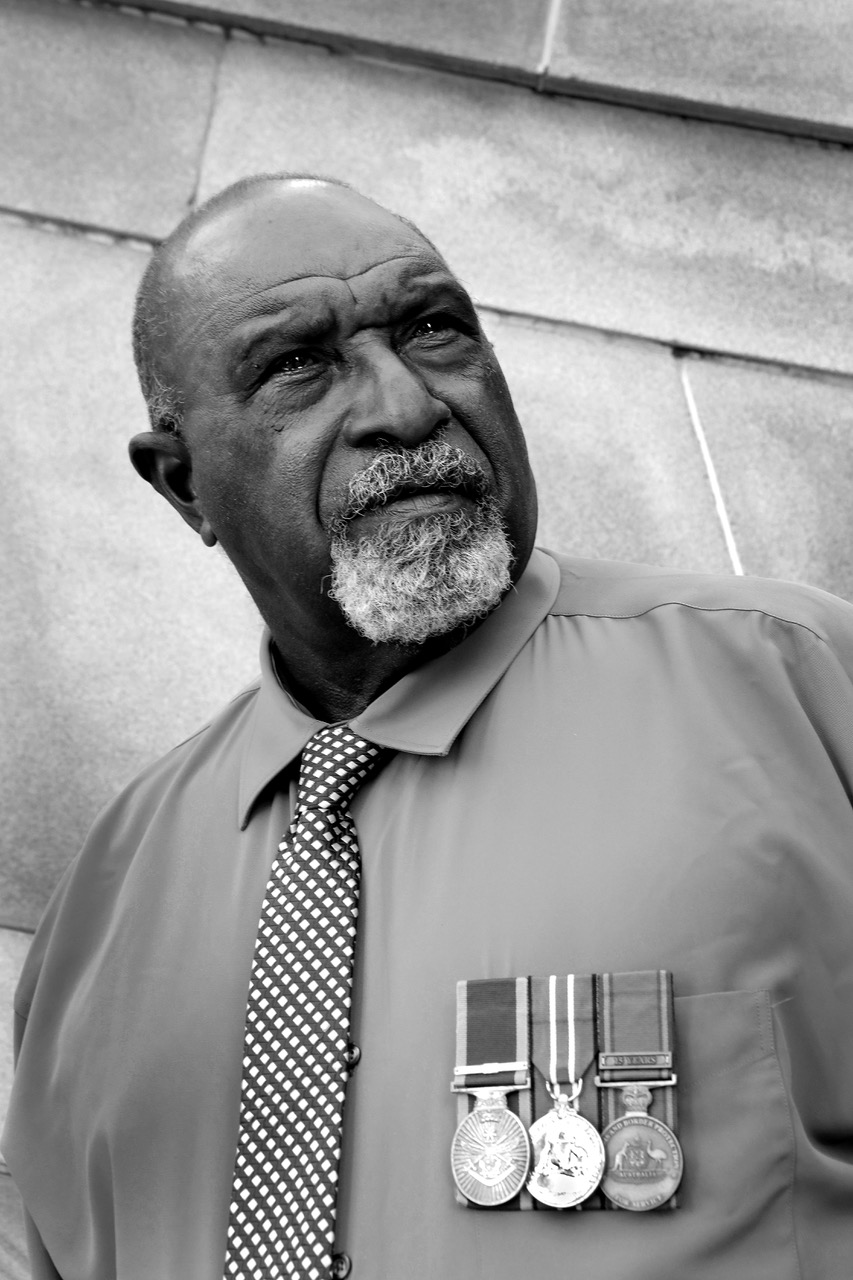Arthur Paul Naawi
Masig Island, Torres Strait
Second Lieutenant
49th and 25th Battalions, Royal Queensland Regiment
Royal Australian Infantry Corps
51st Battalion, Far North Queensland Regiment
Regional Force Surveillance Group
Australian Army Reserve
Medals
Reserve Force Medal
Australian Defence Medal
Australian Customs and Border Protection Service Medal with 25 year clasp
In 1982, I joined the Army in Brisbane, serving in 49th Battalion, Royal Queensland Regiment (RQR) before being transferred to 25th Battalion, Royal Queensland Regiment in Toowoomba and finally serving in 51st Battalion, Far North Queensland Regiment, Charlie Company, where I became a Second Lieutenant and Local Observer Element (LOE) advisor. I was discharged in the mid-2000s. I joined because my Uncle was a Regimental Sergeant Major in the Australian Defence Force serving in Papua New Guinea. He showed me that, for young people, it can change their life. It gives you a chance to motivate and challenge yourself. This is what being in the Army did for me. The experience of parachuting from a Caribou as part of our training was exhilarating – the feeling of flying in the sky and then landing in the ocean was just indescribable. One memory that sticks in my mind is the experience of being tear-gassed as part of recruit training – this was not a good one. But it showed us the power of what it can do to people.
I also worked in Border Force, preventing criminal activities occurring in the Torres Strait, which serves as a gateway for illegal persons or drugs entering Australia. I retired when I was 55, and now I enjoy life and going fishing. However, I am involved in community organisations, including the Torres Strait Island Regional Education Council and Yumi Education. I want to see children get a better education, and I am working at Taigai College, which has seventeen schools – separated by water as each one is located on an island. I am with Erub Campus, and I am a representative of the Eastern Cluster, which includes Mer, Erub and Ugar. Colonisation caused the loss of culture and language through an education system that denied Indigenous people their right to speak their language and practice their culture. Today, it is more important than ever to revive our culture and language through a supportive Education Department curriculum that recognises the cultural rights of our children living throughout Australia and the Torres Strait.
